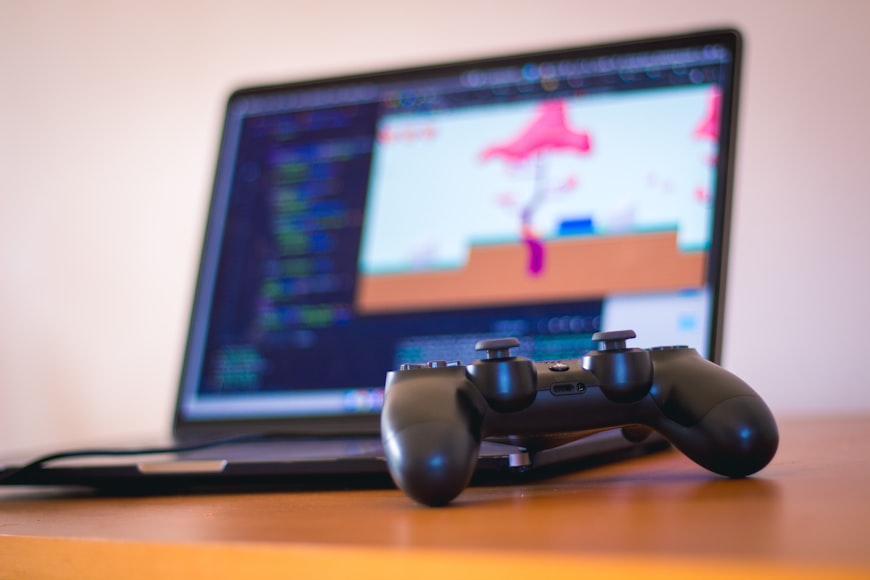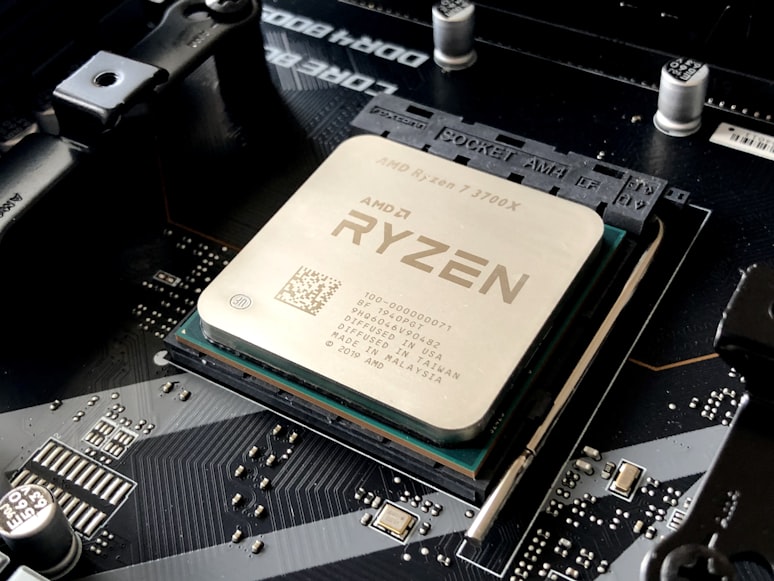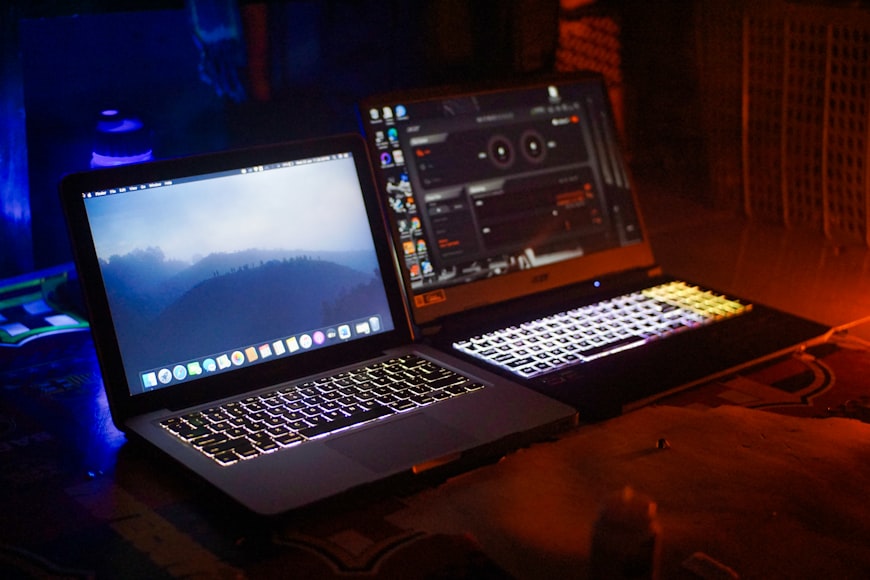Game development has long been a popular career choice for those interested in technology and creativity, but it’s especially hot right now. The gaming industry is currently worth over $150 billion and is expected to continue growing in the coming years. This means there is a high demand for talented game developers to create new and innovative games. For that, you need to choose the best laptop for game development.
Game development involves a lot of creativity and problem-solving. From coming up with new game ideas to designing levels and characters, game developers are constantly using their creative skills. In addition, game developers also need to be able to troubleshoot and find solutions to technical problems that arise during the development process.
Game development is a versatile career that offers a wide range of job opportunities. From programming and design to art and audio, there are many different roles within the game development industry. This means that there is something for everyone, no matter what your interests or skills are.
Are you in the market for a new laptop for game development? Look no further! In this article, we’ll go over all the important factors to consider when choosing the best laptop for your game dev needs.
But first, let’s talk about why it’s important to have a good laptop for game development. When it comes to creating games, you’ll be running a lot of programs and processes that require a lot of computing power. A weak laptop will struggle to keep up, leading to slow rendering times and an overall frustrating experience. On the other hand, a strong laptop will be able to handle all your game dev tasks with ease, allowing you to work efficiently and effectively.
So without further ado, here are the key things to consider when selecting the best laptop for game development:

Processor
When it comes to choosing a laptop for game development, the processor (or CPU) is one of the most important factors to consider. The processor is responsible for executing instructions and performing all the computational tasks required by the programs you run, so a good processor is essential for smooth and efficient game development.
But with so many different processors on the market, how do you know which one is the best for game development? Here are a few tips to help you choose the best processor for your needs:
Determine your budget
The first step in choosing a processor is to determine your budget. Processor prices can range from a few hundred dollars to over a thousand, so it’s important to have an idea of how much you’re willing to spend. This will help narrow down your options and make it easier to find a processor that fits your needs and budget.
Consider the brand and type of processor
There are a few different brands and types of processors to choose from, but for game development, you’ll want to go with something from Intel’s Core I series. The higher the number, the more powerful the processor. For example, an Intel Core i5 is generally more powerful than a Core i3. That being said, even an i3 can handle game development if it’s paired with a good graphics card. However, this is not entirely true. There are generations in the intel series. Higher the generation, more powerful the processor is.
If you’re looking for the best of the best, go for a Core i9. These processors are overclockable, meaning you can boost their speed even further for even more power. Just be aware that they come with a heftier price tag.
Consider the number of cores and threads
Another important factor to consider when choosing a processor is the number of cores and threads. Cores are essentially separate processors within a single chip, and each core can work on a different task at the same time. The more cores a processor has, the more tasks it can handle at once, which is especially useful for multitasking and running multiple programs at once.
Threads are essentially virtual cores that allow a single physical core to work on multiple tasks simultaneously. The more threads a processor has, the better it is at multitasking and handling multiple programs at once.
For game development, we recommend going with a processor that has at least 4 cores and 8 threads. This will provide enough power and multitasking capabilities to handle most game dev tasks.
Consider the clock speed
Clock speed, measured in GHz (gigahertz), refers to the speed at which a processor can execute instructions. A higher clock speed means the processor can perform tasks faster, which is especially important for tasks that require a lot of computational power, such as rendering graphics or running simulations.
For game development, we recommend going with a processor with a clock speed of at least 3.0 GHz. This should provide enough speed to handle most game dev tasks.
Consider other factors
There are a few other factors to consider when choosing a processor, such as the type of motherboard it’s compatible with and the power consumption (measured in watts). These are generally less important for game development, but it’s still good to keep them in mind when making your decision.

Graphics Card
A good graphics card, or GPU (Graphics Processing Unit), is essential for rendering all the pretty graphics in your games. A weak graphics card will result in choppy frame rates and low resolutions, which is a no-go for any serious game developer.
But with so many different graphics cards on the market, how do you know which one is the best for game development? Here are a few tips to help you choose the best graphics card for your needs:
Determine your budget
The first step in choosing a graphics card is to determine your budget. Graphics card prices can range from a few hundred dollars to over a thousand, so it’s important to have an idea of how much you’re willing to spend. This will help narrow down your options and make it easier to find a graphics card that fits your needs and budget.
Consider the brand and model of the graphics card
There are a few different brands of graphics cards to choose from, with NVIDIA GeForce and AMD Radeon being the most popular. Both offer a range of options at different price points, so you’ll want to do some research and see which one is best for your needs and budget.
For game development, we recommend going with at least a mid-range graphics card. Something like an NVIDIA GeForce GTX 1660 or an AMD Radeon RX 5600 should be more than sufficient.
Consider the memory (VRAM) of the graphics card
The memory, or VRAM (Video Random Access Memory), of a graphics card is used to store data that the GPU is currently using or processing. The more VRAM a graphics card has, the more data it can store and process, which is especially important for high-quality graphics and high resolutions.
For game development, we recommend going with a graphics card that has at least 4GB of VRAM. This should provide enough memory to handle most game dev tasks.
Consider other factors
There are a few other factors to consider when choosing a graphics card, such as the type of motherboard it’s compatible with and the power consumption (measured in watts). These are generally less important for game development, but it’s still good to keep them in mind when making your decision.

RAM
When it comes to choosing a laptop for game development, the amount of memory (or RAM) is another important factor to consider. Memory is used to store data that your programs are currently using or processing, and the more memory you have, the more programs you can run at once without experiencing any slowdowns.
The amount of memory you need will depend on the type of games you’re developing and the programs you’ll be running alongside them. If you’re working on small, simple games, you may be able to get away with 8GB of memory. However, if you’re working on larger, more complex games, you’ll want to go with 16GB or more.
For game development, we recommend going with at least 8GB of memory. 16GB is even better, and 32GB is overkill (but hey, if you’ve got the money to spare, go for it).
Storage
When it comes to choosing a laptop for game development, the type and amount of storage is an important factor to consider. Storage refers to the space you have to store all your games, programs, and files, and the type of storage you choose can significantly impact the performance of your laptop.
One type of storage that is particularly popular for game development is the solid-state drive (SSD). SSDs are faster and more reliable than traditional hard drives, making them an excellent choice for game development.
The capacity of an SSD refers to the amount of data it can store. For game development, you’ll want to go with an SSD that has at least 256GB of capacity. This should be enough to store all your games and programs, as well.
Portability
Portability can be an important factor to consider when choosing a laptop for game development, especially if you plan on taking your laptop with you to different locations or traveling frequently. A laptop that is too large or heavy can be difficult to carry around and may not be practical for on-the-go game development.
There are a few different sizes and weights of laptops to choose from, ranging from ultra-portable 11-inch laptops to larger 17-inch laptops. The size and weight of a laptop can significantly impact its portability and usability, so it’s important to choose a size that fits your needs and preferences.
For game development, we recommend going with a laptop that is lightweight and easy to carry around. Something in the 13- to 15-inch range is generally a good choice, as it offers a good balance of portability and screen size. A laptop that weighs around 3 to 4 pounds is also a good choice, as it won’t be too heavy to carry around but will still have enough power for game development.
Display
Having a good display on your laptop is important for game development, as it allows you to see your games and programs in high detail and with accurate colors. A poor quality display can make it difficult to see small details, which can be frustrating and hinder your ability to develop games effectively.
There are a few different types of displays to choose from when it comes to laptops, including 1080p and 4K displays. A 1080p display has a resolution of 1920×1080 pixels, while a 4K display has a resolution of 3840×2160 pixels. This means that a 4K display is much higher resolution and offers much more detailed and crisp images.
For game development, we recommend going with a 1080p display at a minimum. This will provide enough resolution to see small details and work effectively. If your budget allows it, a 4K display is even better, as it offers even more detail and clarity.

Price
Price is always an important factor to consider when choosing a laptop, and this is especially true for game development. While it’s tempting to go for the most expensive and powerful laptop you can find, it’s important to consider your budget and make sure you’re getting the best value for your money.
When it comes to game development, you don’t need the most expensive laptop on the market to get the job done. In fact, you can find laptops that are suitable for game development at a wide range of price points.
For game development, we recommend going with a laptop that falls in the $800 to $1,500 price range. This should provide enough power and features for most game development tasks, without breaking the bank.
Of course, if you have a higher budget and are looking for a more powerful laptop, there are options available in the $1,500 to $2,500 price range. These laptops generally offer more powerful processors, graphics cards, and other features, which can be useful for more demanding game development tasks.
Best Laptops For Game Development
If you’re in the market for a laptop for game development, you want to make sure you’re getting the best one for your needs. With so many different laptops available, it can be overwhelming to choose the right one. To help you out, we’ve compiled a list of the best laptops for game development.
MSI GS66 Stealth
The MSI GS66 Stealth is a powerful laptop that is well-suited for game development. It features a 10th generation Intel Core i7 processor and an NVIDIA GeForce RTX 2080 graphics card, which provides excellent performance for tasks such as coding and testing games. In terms of storage, it has a 1TB NVMe SSD, which allows for fast boot and load times.

Dell Alienware Area-51m
The Dell Alienware Area-51m is a high-end gaming laptop that is also suitable for game development. It has a 9th generation Intel Core i9 processor and an NVIDIA GeForce RTX 2080 graphics card, which makes it one of the most powerful laptops on the market. It also has a large 1TB SSD for storage.
Asus ROG Zephyrus S GX701
The Asus ROG Zephyrus S GX701 is a gaming laptop that is also suitable for game development. It has a 9th generation Intel Core i7 processor and an NVIDIA GeForce RTX 2080 graphics card, which provides excellent performance for tasks such as coding and testing games. It also has a 512GB SSD for fast storage.
Conclusion
Choosing a good laptop for game development is important because it can significantly impact your productivity and efficiency. A good laptop should have enough power and features to handle the demands of game development, without breaking the bank.
There are a lot of different laptops available, and each one has its own unique set of features and capabilities. It’s important to do your own research and consider your own needs and budget before making a purchase decision.
Some factors to consider when choosing a laptop for game development include the processor, graphics card, memory, storage, display, and price. You’ll want to find a laptop that has a good balance of these features and fits your needs and budget.
In conclusion, choosing a good laptop for game development is important for your productivity and efficiency. Be sure to do your own research and consider your own needs before making a purchase decision to ensure you get the best laptop for your game development needs.
FAQs
How much performance do I need for game development?
For game development, we recommend going with a laptop that has at least a mid-range processor and graphics card. Something like an Intel Core i5 processor and an NVIDIA GeForce GTX 1650 graphics card should be more than sufficient.
How much should I spend on a laptop for game development?
If you’re on a tight budget, you can find laptops that are suitable for game development for around $800 to $1,500. If you have a higher budget and are looking for a more powerful laptop, there are options available in the $1,500 to $2,500 price range.
Should I get a desktop or a laptop for game development?
The choice between a desktop and a laptop for game development will depend on your personal preferences and needs. Desktops are generally more powerful and customizable than laptops, but they’re also larger and less portable. Laptops, on the other hand, are more portable but may not be as powerful as a desktop.
If you need a lot of power and customization options, a desktop may be the better choice. However, if you need a more portable solution, a laptop is the way to go.









